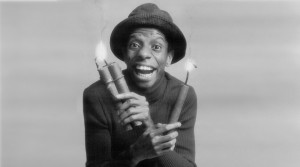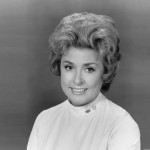 A native of The Bronx, actor Jimmie Walker began his career in 1969 as a young standup comic. Five years later, the youthful comedian landed the role of J.J. Evans on television producer Norman Lear’s latest project, “Good Times.” Flanked by talented, accomplished screen actors like Esther Rolle and John Amos, Walker quickly became the show’s comic relief, balancing the show’s tender family moments with bouts of his signature goofy, physical comedy.
A native of The Bronx, actor Jimmie Walker began his career in 1969 as a young standup comic. Five years later, the youthful comedian landed the role of J.J. Evans on television producer Norman Lear’s latest project, “Good Times.” Flanked by talented, accomplished screen actors like Esther Rolle and John Amos, Walker quickly became the show’s comic relief, balancing the show’s tender family moments with bouts of his signature goofy, physical comedy.
Though Jimmie Walker played just one role on television, few actors have shot to prominence more quickly. Jimmy Walker’s “J.J.” became so popular so quickly, he changed the direction of the show. Overnight, Walker’s comic catchphrase became part of the national vocabulary – it’s safe to say that “Dy-no-mite!” has firmly lodged itself into the American psyche, ensuring the longevity of Walker’s comedic legacy. Much of Walker’s appeal came from his ability to use his wiry frame for comic effect, placing him within a long tradition of television’s most celebrated physical comics.
Taking the Pie on “Good Times”
Though audiences loved Jimmie Walker’s silly onscreen antics, producer Norman Lear had different intentions for his groundbreaking sitcom. While Walker’s outsized acting was popular from the start, controversy was brewing backstage.
“As talent, I don’t think Norman Lear agrees with anything that I have ever done,” Walker reflected. “I think that Norman felt that his show was hijacked from his idea, what he wanted to do. And I think to this day, he still regrets that.”
The show’s creators had designed “Good Times” as a vehicle to portray the African-American experience on television in a new and progressive manner. Even Walker’s co-stars shared Lear’s disdain for his particular brand of goofball comedy. “I thought that we had lost the focus, which was the family as a whole and not just, you know, buffoonery,” explained John Amos, who played Walker’s onscreen father, James Evans, Sr.
Despite the objections, Jimmie Walker defended his acting style and his character’s popularity. He was proud of his role as comic relief, citing the archetype’s significance in the sitcom genre.
“Any sitcom you do, someone has to be the guy to take the pie,” explained Walker with a chuckle. “By that, I mean that person has to be the one that you look to for laughs.”














































